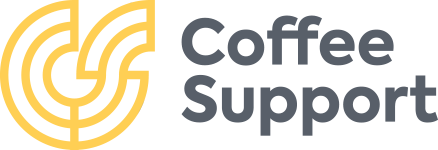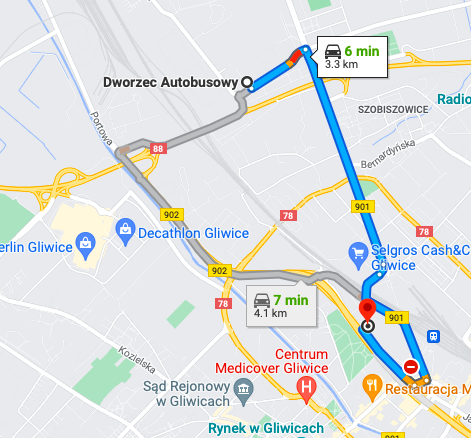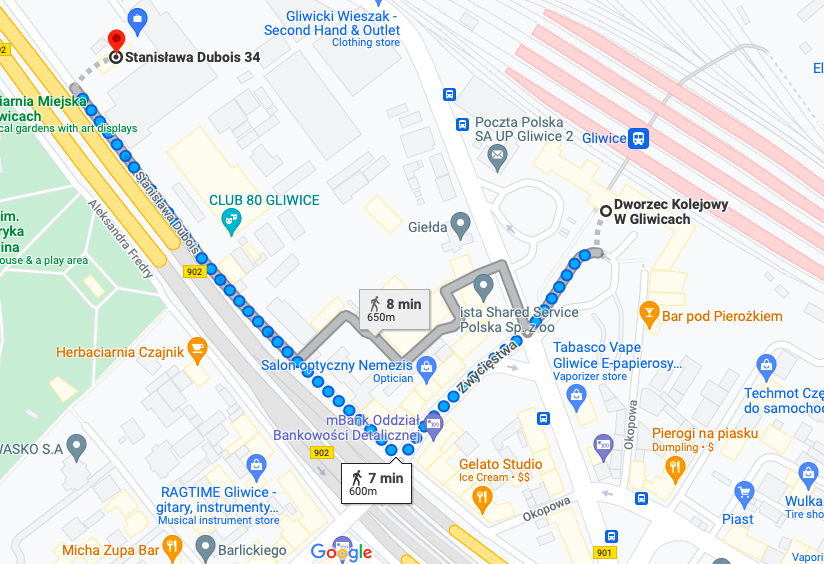
Sensory Skills training means acquiring the skills of professional sensory evaluation of coffee, determining it’s quality and creating a department for coffee quality and development in your company.
General information:
Participation in the Sensory Skills training offers the opportunity to learn about the methodology of professional coffee sensor evaluation in the cupping procedure. We teach in a practical and interactive way how to sensory analyze coffee in terms of its quality and how to assess perceived tastes, aromas and texture using evaluation forms. We present ways to build sensory, quality, consumer and post-production tests in the coffee industry. Participants will also learn how to avoid errors in sensory analysis and how to build a professional panel of sensory testers for the coffee roaster.
Foundation level:
The course introduces you to issues such as sensory analysis and the mechanisms of human physiology responsible for the sensation of taste, aroma, body and texture of coffee. Students will learn the five basic tastes, aroma groups and flavor notes. They learn to describe the intensity and quality of coffee using categories and sensory attributes and tools: SCA Coffee Flavor Wheel and Le Nez du Cafe. The training participants will also learn about the SCA cupping procedure.
The scope of the course:
- Basic knowledge of sensory analysis and its importance during coffee tasting.
- Sense of taste and sight: mechanism of action and participation in sensory analysis.
- Exercises in recognizing 5 basic tastes: sweet, salty, bitter, sour, and umami.
- Sensory categories body and texture – practical exercises.
- Exercises in recognizing the basic groups of aromas and notes of flavor present in coffee with the use of Le Nez Du Cafe and SCA Coffee Flavor Wheel tools.
- Comparative coffee tests – exercises in describing the intensity of basic flavors as well as the body and texture of the brew.
- Cupping SCA: purpose, definitions, protocol for the preparation and tasting of coffee.
- Categories and sensory attributes useful for describing coffee infusion.
Additional information:
- Requirements for participants: experience is not required.
- The training ends with a theoretical and practical exam. Obtaining positive results of the exams gives the opportunity to receive the SCA certificate.
- Number of participants: 4 to 8 people.
- Duration of the course: 8 hours (a 45-minute meal break is planned during the course).
- Course price without SCA certificate: PLN 990 gross per person.
- SCA-certified and “on-line” exam: PLN 575 gross per person.
Intermediate level:
The training is an extension of the basic level. Participants will learn a broader scope of the science of food sensory analysis and its application in the high-quality coffee industry. Become familiar with the types of sensory tests and the associated potential errors during the sensory analysis. They learn what are the goals and operation of a professional sensory panel. During the training, cupping according to SCA standard, along with learning how to fill in forms of coffee evaluation and analysis of descriptions of individual sensory categories. Participants also take part in numerous sensory tests, during which they learn to correctly use categories and sensory attributes when describing the intensity and quality of the tasted coffee.
The scope of the course:
- Examples of the use of sensory analysis in the coffee industry.
- The sense of taste and sight: the mechanism of action and participation in the sensory analysis.
- Trigeminal nerve: mechanism of action and participation in sensory analysis.
- Basic flavors: exercise on gradations of different intensities of basic flavors.
- Exercises in describing the aromas and notes of coffee flavor with the use of the following tools: SCA Coffee Flavor Wheel and Le Nez du Cafe aromas.
- Types of sensory tests: exclusions, descriptive and hedonic. Analytical tests.
- Comparative tests – exercises in comparing coffee in terms of the intensity of basic flavors, body and quality.
- Triangulation tests – exercises to exclude other coffee in terms of sensory features.
- Flavor Profile Analysis – an exercise in carrying out a sensory test for the intensity of basic flavors and different flavor groups.
- Cupping SCA: purpose, preparation procedure, SCA printing.
- Cupping SCA: calibration. Exercise in printing, assessing and describing coffee.
- Categories and sensory attributes.
- Errors in sensory analysis.
- Organization of the sensory panel: recruitment of members, methodology of operation.
Additional information:
- Requirements for participants: recommended Sensory Skills course at the basic level.
- The training ends with a theoretical and practical exam. Obtaining positive results of the exams gives the opportunity to receive the SCA certificate.
- Number of participants: 4 to 8 people.
- Duration of the course: 3 days, 8 hours each (a 45-minute meal break is planned for each day of the course).
- Course price without SCA certificates: PLN 3,190 gross per person.
- Course price with SCA certificate: PLN 3,565 gross per person.
Professional level:
The training is intended for people who want to professionally assess the quality of coffee using various types of sensory tests, with particular emphasis on the SCA cupping procedure. The course is focused on the in-depth development of the participants’ sensory skills, taking into account the specificity of the coffee industry. In addition to practical exercises, the theoretical part concerning sensory analysis as a scientific field has been expanded.
The scope of the course:
- The participation of human senses in sensory analysis: sense of taste, smell, sensation and perception, sensory sensitivity thresholds.
- The acidity in coffee: an exercise in recognizing the different acids in coffee.
- Basic flavors: an exercise on gradations of different intensities of a mixture of basic flavors.
- Modulation of basic flavors in coffee.
- Practical application of sensory analysis in the coffee industry.
- Various types of sensory tests with an emphasis on descriptive and consumer tests.
- Errors in sensory analysis.
- Raw and roasted coffee defects: theory and exercises in recognizing them in brewed coffee.
- Exercises in describing the positive qualities of coffee flavor.
- Descriptive sensory profiling: theory and practical exercise.
- Cupping SCA: procedure, calibration, evaluation of coffee with printouts, discussion of the results.
Additional information:
Requirements for participants: Intermediate Level Sensory Skills course required.
- The training ends with a theoretical and practical exam. Obtaining positive results of the exams gives the opportunity to receive the SCA certificate.
- The number of participants: 4 to 6 people.
- The duration of the course in the 3-day version: 3 days, 8 hours each (a 45-minute meal break is planned for each day of the course).
- Duration of the course in the 4-day version: 4 days, 7 hours each (a 45-minute meal break is planned for each day of the course).
- Course price without SCA certificates: PLN 3,990 gross per person
- Course price with SCA certificate: PLN 4,565 gross per person
Foundation level
The course introduces you to issues such as sensory analysis and the mechanisms of human physiology responsible for the sensation of taste, aroma, body and texture of coffee. Students will learn the five basic tastes, aroma groups and flavor notes. They learn to describe the intensity and quality of coffee using categories and sensory attributes and tools: SCA Coffee Flavor Wheel and Le Nez du Cafe. The training participants will also learn about the SCA cupping procedure.
The scope of the course:
- Basic knowledge of sensory analysis and its importance during coffee tasting.
- Sense of taste and sight: mechanism of action and participation in sensory analysis.
- Exercises in recognizing 5 basic tastes: sweet, salty, bitter, sour, and umami.
- Sensory categories body and texture – practical exercises.
- Exercises in recognizing the basic groups of aromas and notes of flavor present in coffee with the use of Le Nez Du Cafe and SCA Coffee Flavor Wheel tools.
- Comparative coffee tests – exercises in describing the intensity of basic flavors as well as the body and texture of the brew.
- Cupping SCA: purpose, definitions, protocol for the preparation and tasting of coffee.
- Categories and sensory attributes useful for describing coffee infusion.
Additional information:
- Requirements for participants: experience is not required.
- The training ends with a theoretical and practical exam. Obtaining positive results of the exams gives the opportunity to receive the SCA certificate.
- Number of participants: 4 to 8 people.
- Duration of the course: 8 hours (a 45-minute meal break is planned during the course).
- Course price without SCA certificate: PLN 990 gross per person.
- The price of the SCA-certified course: PLN 1340 gross per person.
Intermediate level:
The training is an extension of the basic level. Participants will learn a broader scope of the science of food sensory analysis and its application in the high-quality coffee industry. Become familiar with the types of sensory tests and the associated potential errors during the sensory analysis. They learn what are the goals and operation of a professional sensory panel. During the training, cupping according to SCA standard, along with learning how to fill in forms of coffee evaluation and analysis of descriptions of individual sensory categories. Participants also take part in numerous sensory tests, during which they learn to correctly use categories and sensory attributes when describing the intensity and quality of the tasted coffee.
The scope of the course:
- Examples of the use of sensory analysis in the coffee industry.
- The sense of taste and sight: the mechanism of action and participation in the sensory analysis.
- Trigeminal nerve: mechanism of action and participation in sensory analysis.
- Basic flavors: exercise on gradations of different intensities of basic flavors.
- Exercises in describing the aromas and notes of coffee flavor with the use of the following tools: SCA Coffee Flavor Wheel and Le Nez du Cafe aromas.
- Types of sensory tests: exclusions, descriptive and hedonic. Analytical tests.
- Comparative tests – exercises in comparing coffee in terms of the intensity of basic flavors, body and quality.
- Triangulation tests – exercises to exclude other coffee in terms of sensory features.
- Flavor Profile Analysis – an exercise in carrying out a sensory test for the intensity of basic flavors and different flavor groups.
- Cupping SCA: purpose, preparation procedure, SCA printing.
- Cupping SCA: calibration. Exercise in printing, assessing and describing coffee.
- Categories and sensory attributes.
- Errors in sensory analysis.
- Organization of the sensory panel: recruitment of members, methodology of operation.
Additional information:
- Requirements for participants: recommended Sensory Skills course at the basic level.
- The training ends with a theoretical and practical exam. Obtaining positive results of the exams gives the opportunity to receive the SCA certificate.
- Number of participants: 4 to 8 people.
- Duration of the course: 3 days, 8 hours each (a 45-minute meal break is planned for each day of the course).
- Course price without SCA certificates: PLN 2,690 gross per person.
- Price of the SCA-certified course (only for SCA members): PLN 3,255 gross per person. *
- The price of the SCA-certified course for people from outside the SCA association: PLN 3,710 gross.
* Certificates are priced only for SCA members with a currently paid membership fee.
Professional level:
The training is intended for people who want to professionally assess the quality of coffee using various types of sensory tests, with particular emphasis on the SCA cupping procedure. The course is focused on the in-depth development of the participants’ sensory skills, taking into account the specificity of the coffee industry. In addition to practical exercises, the theoretical part concerning sensory analysis as a scientific field has been expanded.
The scope of the course:
- The participation of human senses in sensory analysis: sense of taste, smell, sensation and perception, sensory sensitivity thresholds.
- The acidity in coffee: an exercise in recognizing the different acids in coffee.
- Basic flavors: an exercise on gradations of different intensities of a mixture of basic flavors.
- Modulation of basic flavors in coffee.
- Practical application of sensory analysis in the coffee industry.
- Various types of sensory tests with an emphasis on descriptive and consumer tests.
- Errors in sensory analysis.
- Raw and roasted coffee defects: theory and exercises in recognizing them in brewed coffee.
- Exercises in describing the positive qualities of coffee flavor.
- Descriptive sensory profiling: theory and practical exercise.
- Cupping SCA: procedure, calibration, evaluation of coffee with printouts, discussion of the results.
Additional information:
- Requirements for participants: Intermediate Level Sensory Skills course required.
- The training ends with a theoretical and practical exam. Obtaining positive results of the exams gives the opportunity to receive the SCA certificate.
- Number of participants: 4 to 6 people.
- The duration of the course in the 3-day version: 3 days, 8 hours each (a 45-minute meal break is planned for each day of the course).
- Duration of the course in the 4-day version: 4 days, 7 hours each (a 45-minute meal break is planned for each day of the course).
- Course price without SCA certificates: PLN 3,190 gross per person / PLN 3,790 gross. *
- Price of the SCA-certified course (only for SCA members): PLN 4,210 gross per person / PLN 4,810 gross. **
- The price of the certificate for people from outside the SCA association: PLN 4,720 gross / PLN 5,310 gross.
** Certificates are priced at a discount only to SCA members with a currently paid membership fee.
* The higher price applies to the four-day version of the course.




